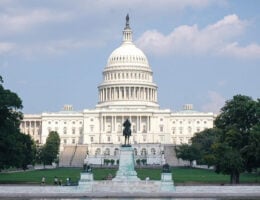The new DOJ FCPA enforcement policy emphasizes US national security and business interests, moving away from solely prosecuting bribery of foreign officials. The focus will be on bribes involving Transnational Criminal Organizations (TCOs), cartels, and those impacting US competitiveness or national security. Routine, locally accepted business practices are deprioritized. The DOJ will exercise discretion to determine if conduct genuinely impacts US interests, leaving other cases to the SEC or foreign regulators. This creates a more nuanced and unpredictable enforcement environment, with clarity expected only as enforcement patterns emerge.
On February 10, 2025, President Donald Trump signed an Executive Order (“Order”) directing a 6-month moratorium on the enforcement of the Foreign Corrupt Practices Act (FCPA), while the Attorney General revises Department of Justice (DOJ) policies and guidelines governing FCPA enforcement. The Order instructs that these changes be made in the interest of promoting US companies’ ability to compete in foreign markets. While the Order introduces uncertainty for the future of FCPA enforcement, companies are advised to stay the course on compliance and exercise caution when considering any shifts in compliance practices and resourcing in the near term.
A recent memorandum from Attorney General Pam Bondi signals a potential shift in the Department of Justice’s FCPA enforcement priorities. According to the memorandum, FCPA enforcement should prioritize foreign bribery linked to Cartels and Transnational Criminal Organizations (TCOs), potentially altering the landscape of white-collar corporate enforcement. While traditional FCPA cases will likely continue, the new directive grants local US Attorneys’ Offices greater latitude in conducting FCPA investigations touching on Cartels and TCOs.
In Snyder v. United States, the Supreme Court, in a 6-3 decision authored by Justice Kavanaugh, significantly limited the federal statute criminalizing gratuities in state and local jurisdictions. Snyder, a mayor, awarded a USD 1.3 million contract and received a USD 13,000 payment from the benefiting company. The Supreme Court ruled that the relevant statute, Title 18 section 666, applies only to bribes paid or promised before an official act, not after-the-fact gratuities.
On 5 June 2024, the United States Court of Appeals for the Fifth Circuit vacated the Private Fund Adviser rule (“Rule”) in its entirety on the grounds that the SEC, in enacting the Rule, had exceeded its statutory authority. The Rule was adopted by the SEC in August 2023 and would have fundamentally changed the regulatory landscape for private equity funds and their investors. The outcome was somewhat unexpected as in oral arguments the petitioners only directly challenged three of the five provisions that make-up the Rule and there was significant discussion as to whether the five provisions of the Rule should be considered a single rule or if the five provisions should be considered separately.
Federal regulatory agencies have prioritized enforcement efforts that target the mishandling of data by companies that store and monetize large amounts of personal or sensitive information. This issue cuts across multiple regulatory areas which has prompted increased coordination between federal agencies. Notably, on March 26, 2024, the US Federal Communications Commission, Consumer Financial Protection Bureau, and the Federal Trade Commission, publicized a coordinated effort to increase their technological capabilities to address privacy and competition concerns related to the use of data.
The last thirty days in September, the end of the US federal government’s fiscal year, is generally an important time to analyze enforcement activity by the US Securities and Exchange Commission and the US Commodity Futures Trading Commission. In this short video, Baker McKenzie Partner Peter Chan, a former SEC Assistant Director of Enforcement, provides his insights regarding the importance of the timing of some of these enforcement actions.
US agencies such as the SEC, the CFTC and the FTC have extensive enforcement powers to seek significant financial penalties and limit or otherwise affect conduct through court injunctions or administrative orders. Companies and executives under investigation and threatened with enforcement actions by these agencies often choose to settle rather than litigate. Historically, from as cost-benefit analysis, settlement is preferable to the cost of litigation and the long term risks of extensive fights with agencies that would continue to be their regulators.
In an attempt to protect its oil and gas industry, Texas has passed legislation that seeks to punish investment firms that divest from fossil fuel related investments. On 16 March 2022, the Texas Comptroller of Public Accounts, Glenn Hegar, sent a letter to 19 major financial companies which was not limited to US or Texas-based companies and included Japanese companies requesting verification that they do not engage in investment policies that result in the boycott of fossil fuel-based energy. This request was made pursuant to Texas Government Code Chapter 809: recent legislation prohibiting the Texas Government from investing in financial companies that take any action intended to penalize, inflict economic harm, or limit commercial relations with a company based on the company’s involvement in fossil fuel-based energy.
A significant new rulemaking proposal from the U.S. Securities and Exchange Commission (SEC) would fundamentally alter how private investment funds negotiate and communicate with their investors. The proposal (“Proposal”) would prohibit indemnification of managers for many types of mistakes, restrict some common side letter terms, require auditors to report certain events to the SEC and mandate quarterly reporting for private fund investors. Crucially, some of the Proposal’s prohibitions would, for the first time, substantively regulate unregistered and exempt investment advisers, both inside and outside of the United States.








